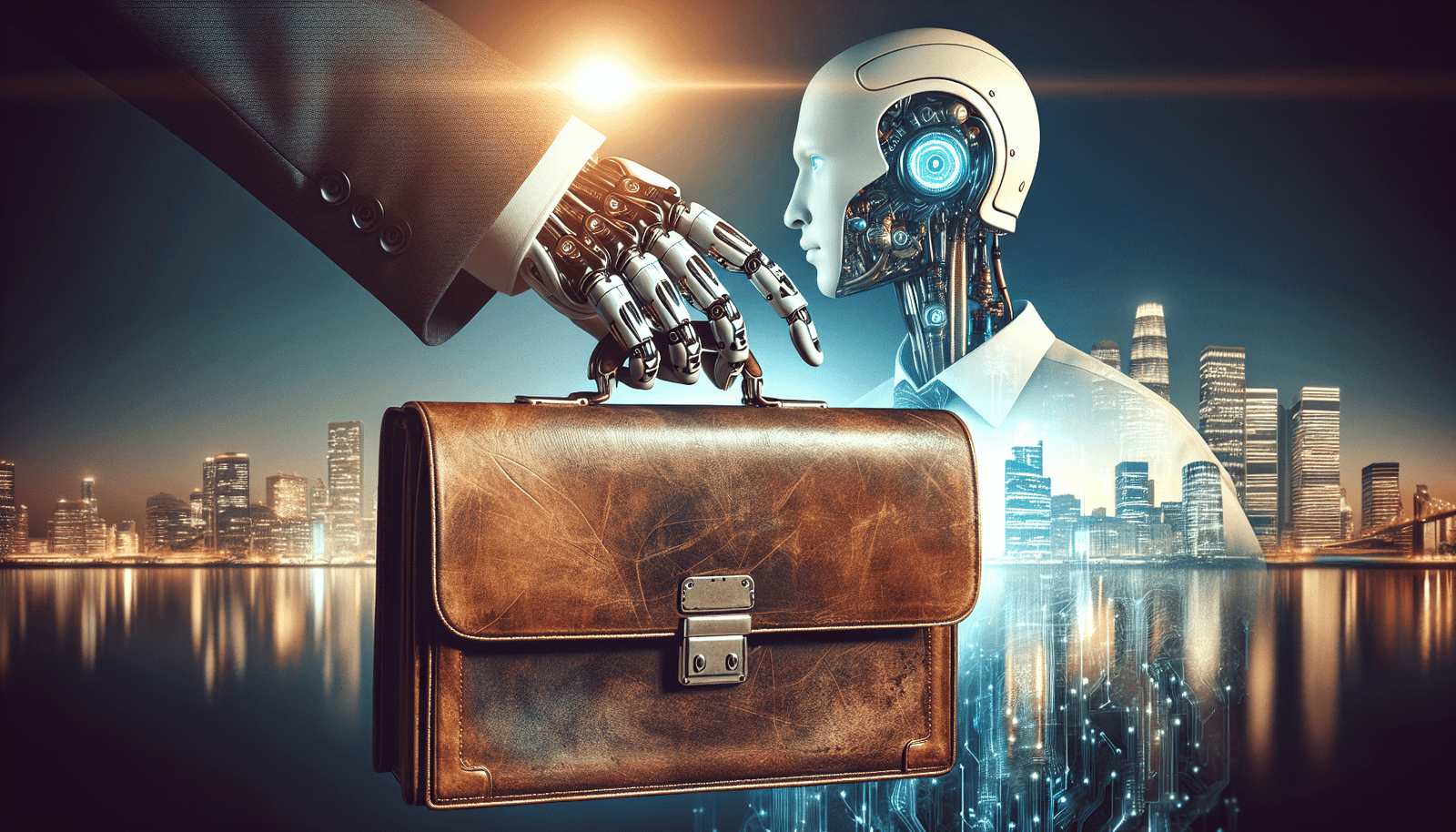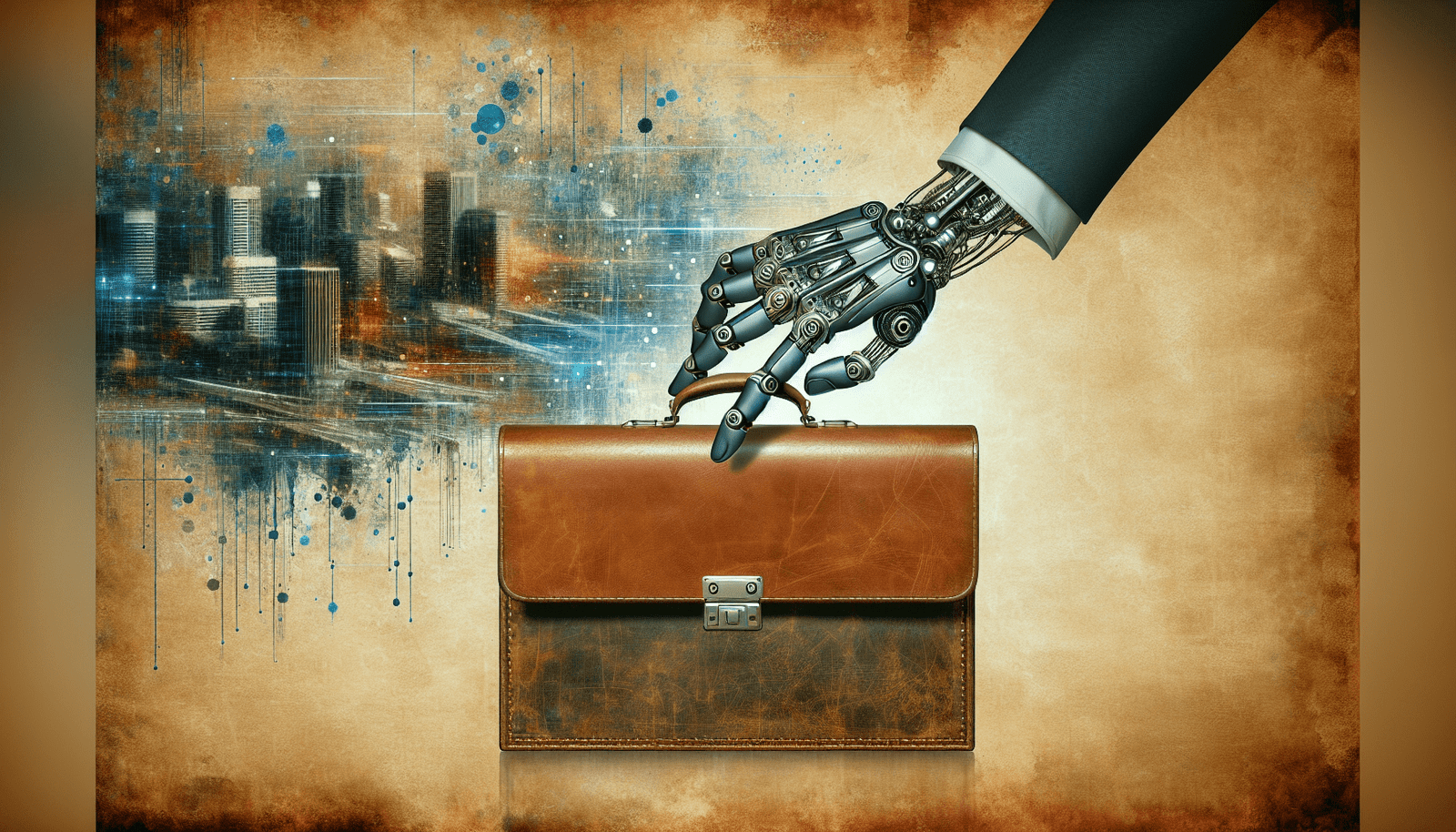The intricacies of the job market are undergoing a profound transformation, influenced by the subtle yet powerful force of artificial intelligence. This article explores the unanticipated changes AI is introducing to various industries by leveraging advancements in deep learning and robotics. Readers will gain insights into the evolving dynamics that professionals across all sectors, especially those in writing and coding, must understand and adapt to. AI’s ability to transcend the limitations of prior automation technologies heralds a new era of labor market disruptions and opportunities, prompting a shift towards skills integration and technological adaptation.
As generative AI continues to redefine job roles, it challenges traditional employment structures by increasing the competitive landscape for freelancers and altering hiring practices. Despite the looming threat of job displacement, AI simultaneously opens avenues for increased responsibility and compensation for those who master the technology. The article underscores the importance of continuous skill updates to not only survive but thrive amidst these shifts. By engaging with AI’s evolving capabilities, both employees and employers can co-evolve, ensuring that human potential is magnified rather than overshadowed by technological advancements.
The Current Impact of AI on the Job Market
Subtle integration of AI technologies in workplaces
In modern workplaces, the integration of AI technologies is often so seamless that it goes unnoticed. Your daily operations might already be leveraging AI without your explicit awareness. From background processes in data analysis to automated scheduling and communications, AI is quietly enhancing productivity. These technologies serve as invisible assistants, helping to optimize workflows and reduce redundancy. By embedding AI into routine tasks, businesses are subtly reshaping the way work is conducted, allowing for smoother operations without disrupting existing systems.
Unnoticed changes happening across various sectors
Across various sectors, AI-induced changes are unfolding with minimal fanfare. You might not be aware of how AI tools are reconfiguring logistics, healthcare, finance, and even education. For example, predictive analytics are refining supply chain management by forecasting demand and optimizing inventory in retail. In finance, AI algorithms are not only assisting in fraud detection but also customizing financial advice tailored to individual needs. These changes might be out of sight, but they are significantly enhancing the functionality and efficiency across sectors.
Breakthroughs in AI that are reshaping job roles
Recent breakthroughs in AI, particularly in machine learning and automation, are fundamentally transforming job roles. You are witnessing a paradigm shift where AI not only supports but actively reshapes positions. Algorithms are taking over repetitive tasks, allowing you to focus on strategic and creative endeavors. For example, customer support roles are evolving as chatbots handle common queries, while human agents concentrate on complex issues. AI is thus enabling the redefinition of traditional roles, encouraging a focus on higher-order skills and decision making.
Advancements in AI Technologies
Deep learning innovations
Deep learning has been at the forefront of AI advancements, leading to significant strides in data processing and interpretation. You might have encountered applications of deep learning in speech recognition, where systems have become adept at understanding and translating languages with human-like accuracy. Image recognition has also improved dramatically, enabling advancements in security and healthcare diagnostics. These innovations are critical as they allow AI to learn and adapt from vast datasets, providing more nuanced and effective solutions to complex problems.
Robotics advancements in automation
Robotics has seen transformative advancements, particularly in automation. If you’re in manufacturing or warehousing, you’ve likely observed how robotic automation enhances production efficiency and accuracy. Robotics technologies are not only increasing output but are also reducing human error. This automation reflects a shift towards smart factories, where robotics play an integral role in operations. These systems can handle tasks ranging from intricate assembly to heavy lifting, effectively complementing human labor and enhancing overall productivity.
Generative AI’s impact on creative sectors
In the creative sectors, generative AI is making a substantial impact. Tools that can create text, art, music, and even design elements are changing how creative projects are approached. You might be using such tools to brainstorm or refine ideas, automating parts of the creative process that previously required extensive manual input. The ability of AI to generate novel and personalized content provides endless possibilities in marketing, entertainment, and publishing, opening new avenues for creativity and expression.

This image is property of i.ytimg.com.
AI’s Role in Job Role Transformation
How AI is redefining traditional job roles
AI is redefining traditional job roles by automating mundane tasks and offering tools for complex problem-solving. You may find your role evolving from task execution to strategic planning as AI tools manage routine operations. For instance, in legal professions, AI can handle document review, enabling lawyers to focus on case strategies and client interactions. AI’s capacity to handle large volumes of data ensures that traditional roles are not just preserved but are enhanced, pushing professionals towards more value-added activities.
Emergence of new AI-centric job positions
The AI evolution is giving rise to new job positions centered around AI technologies. Whether you are a data scientist or an AI ethicist, these roles are crucial in shaping how AI is developed and deployed. Positions such as AI trainers, who oversee AI learning processes, and AI strategists, who integrate AI with business goals, are becoming increasingly vital. These emerging roles highlight AI’s growing influence and the demand for specialized skills to manage and innovate these technologies effectively.
Industries most affected by AI transformations
Certain industries are experiencing more profound transformations due to AI. If you work in industries like retail, healthcare, or finance, you are likely witnessing faster adoption of AI technologies. Retail is leveraging AI for personalized shopping experiences and predictive inventory management. In healthcare, AI assists in diagnostics and patient care, offering more accurate and efficient services. The financial industry utilizes AI for risk management and customer insights, enhancing decision-making processes. These industries are at the forefront of the AI revolution, showcasing how adaptively AI can be integrated to improve service quality and efficiency.
AI and Industry-Specific Changes
Sectors experiencing the biggest AI-driven changes
Specific sectors, such as manufacturing, logistics, and finance, are undergoing significant AI-driven changes. In manufacturing, AI enhances quality control and predictive maintenance, reducing downtime and cost. Logistics are being transformed by AI through optimized routing and delivery schedules, improving efficiency and sustainability. In finance, predictive analytics and automated trading are reshaping market engagement. These sectors highlight how AI can serve as a catalyst for industry-wide innovation, improving both operational efficiencies and customer satisfaction.
Comparing AI’s impact with past automation technologies
The impact of AI on industries differs from past automation technologies due to its adaptability and learning capabilities. Unlike earlier automation, which primarily focused on mechanizing routine tasks, AI offers the ability to learn, adapt, and even predict. This means that while past technologies replaced manual labor in manufacturing, AI extends its influence into cognitive and creative tasks. You can expect AI to not only automate processes but to refine and enhance them continuously, offering a dynamic evolution rather than static improvements.
Case studies of AI integration in various industries
There are numerous case studies that illustrate AI integration within industries. For instance, in agriculture, AI-powered drones and sensors optimize crop monitoring and resource management. In retail, AI algorithms are employed for dynamic pricing and improved customer recommendations. Healthcare providers are using AI for patient diagnostics and personalized treatment plans. Each case study demonstrates the variability and potential of AI applications, showcasing tangible results in efficiency, accuracy, and innovation within their respective fields.

The Rise of AI in Writing and Coding Professions
Significant short-term job replacements
In writing and coding professions, AI has led to notable short-term job replacements. You might observe AI tools like GPT models automating writing tasks, from generating reports to creative writing. AI’s enhanced ability to write and code has decreased demand for traditional roles while prompting existing professionals to adapt to new technology-influenced practices. As AI continues to advance, understanding and leveraging these tools becomes critical for maintaining relevance in the job market.
Effects of tools like Chat GPT on job post reductions
The introduction of AI tools such as Chat GPT has significantly affected job postings in writing and coding sectors. You might have noticed a decline in job listings as AI performs tasks traditionally done by humans. This shift represents a 21% decrease in automation-prone sectors and a more pronounced 30% decline in writing roles specifically. This reduction highlights the disruptive nature of AI in job markets and underscores the need for job seekers to acquire AI-related skills to remain competitive.
Increased competition in the online labor market
AI’s impact has led to increased competition in the online labor market. With more tasks automated, you may face heightened competition for available roles, evidenced by an upsurge in job applications. This increase necessitates a re-evaluation of skills and strategies to stand out in a crowded marketplace. As job seekers leverage AI to enhance their profiles and productivity, possessing a strong understanding of AI applications provides a notable advantage in this competitive landscape.
Economic Implications of AI Adoption
Decreased job postings in automation-prone sectors
The rise of AI has resulted in decreased job postings in sectors prone to automation. If you’re in such a sector, you might see fewer opportunities as AI tools replace roles that involve repetitive tasks. This decline indicates a shift in industry demands towards positions requiring advanced analytical and strategic skills, driving a need for you to upskill and adapt to meet the evolving market requirements.
Impact on wages and employment stability
AI’s influence on wages and employment stability is significant. While some jobs face redundancy, those who can adeptly integrate AI capabilities into their roles may witness wage growth and increased job security. You may notice an emphasis on your ability to work alongside AI, enhancing tasks with AI tools, which is likely to result in higher remuneration for complex job roles that cannot be easily automated.
Long-term economic prospects with AI integration
Long-term economic prospects with AI integration suggest a shift towards more strategically demanding and high-paying roles. You are expected to see economic benefits from AI through innovation and productivity growth, creating opportunities in fields such as AI development and ethical governance. To maximize these prospects, investing in continuous learning and AI literacy will be essential, enabling you to harness AI’s full potential within your profession.

Opportunities in an AI-Driven Job Market
Role of AI in enhancing job complexities
AI’s integration into work processes enhances job complexities by enabling tasks that require higher-order thinking and problem-solving skills. Rather than simply automating tasks, AI elevates your role to focus on strategic decision-making, creativity, and leadership. This transition means that those who effectively integrate AI into their workflows will experience professional growth and increased job satisfaction by dealing with more intricate and impactful challenges.
High-paying opportunities for AI-integrated skills
With AI transforming industries, you will find high-paying opportunities for AI-integrated skills. Demand is growing for roles involving AI development, implementation, and management across various sectors. As you acquire expertise in AI applications and analytics, you position yourself for strategic roles such as data science, AI project management, and AI strategy, which command premium salaries and recognition in the evolving job market.
Importance of upskilling in the AI era
In the AI era, upskilling becomes crucial to maintaining relevance and competitiveness. You are encouraged to continuously learn and adapt to the advancements in AI, equipping yourself with the skills needed to navigate technology-driven landscapes. Embracing lifelong learning and remaining proactive in adapting to new tools and technologies will empower you to leverage AI effectively and enhance your career trajectory.
Employer Strategies for Workforce Development
Investing in employee training with AI
Employers play a pivotal role in workforce development through investments in employee training with AI. As an employee, you may benefit from opportunities to engage in AI-focused learning initiatives that expand your skill set. Employers that actively support training and education programs cultivate a workforce adept at implementing AI solutions, which fosters innovation and growth within the organization.
Augmenting human capabilities with AI tools
Employers are increasingly focusing on augmenting human capabilities with AI tools. You might find yourself using AI to enhance your productivity and creativity, rather than replace your responsibilities. By utilizing AI tools in collaboration with human input, workplaces can achieve optimal results, ensuring that both technological and human resources are maximized for enhanced outcomes.
Fostering a culture of continuous learning
In today’s rapidly changing job market, fostering a culture of continuous learning is essential. Employers committed to this culture will encourage you to pursue new knowledge and skills consistently. This approach not only enhances your professional development but also aligns organizational goals with market trends, ensuring preparedness and adaptability in an evolving technological landscape.
Future Prospects of AI in Various Fields
Potential advancements in healthcare through AI
AI holds substantial potential for advancements in healthcare, promising improved diagnostics, treatment precision, and patient care. You may witness AI systems aiding in early disease detection, personalized medicine, and health monitoring, contributing to better patient outcomes and efficiency in healthcare delivery. This transformation suggests a future where AI collaborates with healthcare professionals to innovate solutions and improve public health.
AI’s role in enhancing fields like mathematics
Fields like mathematics stand to benefit significantly from AI’s computational capabilities. You will likely see AI systems aiding in complex calculations, pattern recognition, and problem-solving, which can accelerate research and innovation. As AI enhances mathematical understanding, it complements human reasoning, expanding the possibilities for discovering new mathematical theories and applications.
Possibilities of AI augmenting rather than replacing jobs
The future of AI is not about replacing jobs but rather augmenting them. You can anticipate AI enhancing your role by taking over routine aspects, leaving room for creativity, innovation, and personal growth. By collaborating with AI, you maximize your potential, as AI handles repetitive tasks, freeing you to focus on complex and meaningful work that leverages human creativity and empathy.
Conclusion
Summarizing AI’s hidden yet impactful role in the job market
AI is making significant yet often understated impacts across the job market, seamlessly integrating into various sectors and reshaping roles without overt disruption. Its hidden presence enables improvements in efficiency and productivity, heralding a transformative shift in the workplace.
Encouraging proactive adaptation and skill enhancement
Proactive adaptation and skill enhancement are key to thriving in an AI-driven economy. As you embrace these changes, focusing on acquiring AI competencies will better equip you to navigate and capitalize on the opportunities AI presents, ensuring career resilience and advancement.
Foreseeing a collaborative future between AI and the workforce
The future holds immense potential for a collaborative relationship between AI and the workforce. As AI technologies continue to evolve, they will augment your capabilities, fostering a work environment where human creativity and AI efficiencies combine to drive innovation and growth. Embracing this synergy will be crucial for achieving sustainable success in the evolving job landscape.